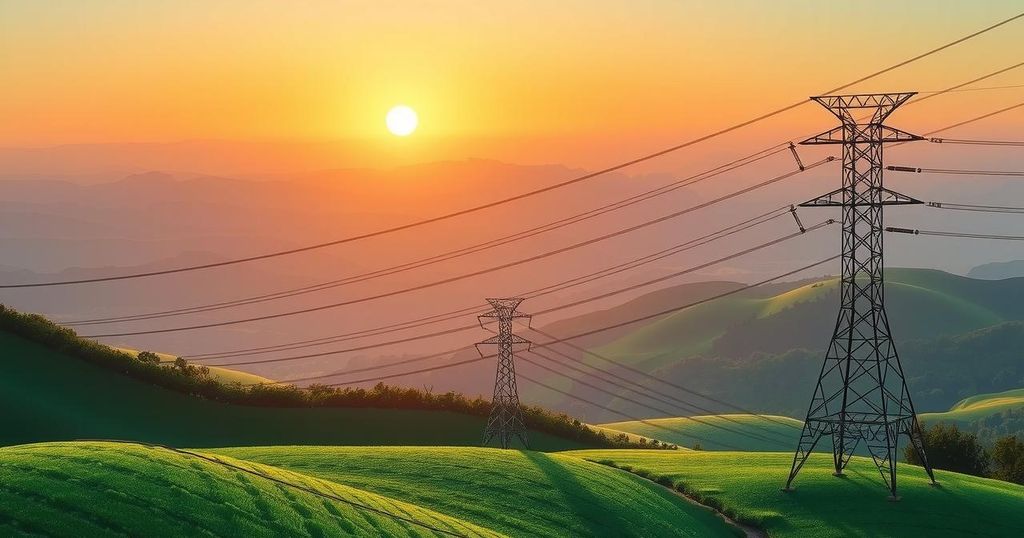The Zambia – Tanzania Interconnector Project (ZTIP) aims to enhance Zambia’s energy access through a $292 million investment from the World Bank. It seeks to reduce energy costs, improve reliability, and facilitate economic growth, particularly in rural areas. The project strengthens the regional energy market and supports climate resilience, thus addressing existing challenges in Zambia’s energy sector.
The Zambia – Tanzania Interconnector Project (ZTIP), supported by the World Bank, aims to enhance Zambia’s access to sustainable and affordable energy, thus stimulating economic growth and job creation. This initiative is designed to improve electricity service reliability and lower costs through increased trade, particularly benefiting rural areas by enhancing education and health services.
With a financial commitment amounting to $292 million, ZTIP will bolster the long-term sustainability of Zambia’s energy sector while promoting universal electricity access. Achim Fock, the World Bank Country Manager for Zambia, emphasized that this project is crucial for addressing the financial viability challenges facing Zambia’s power sector.
ZTIP is integral to the World Bank’s RETRADE-SA MPA initiative, which seeks to advance power trade and climate resilience in the Southern African Power Pool (SAPP). This funding comprises $245 million from the International Development Association (IDA), $17 million from the UK’s FCDO via ESMAP, and $30 million from the EU.
Yadviga Semikolenova, Energy Practice Manager for Eastern and Southern Africa, affirmed that the project will create the most extensive energy market globally, connecting the Eastern Africa Power Pool (EAPP) with SAPP. For Zambia, this will enhance resilience against climate variability, augment the transmission system, and promote renewable energy generation.
The Zambia Electricity Supply Corporation (ZESCO) will gain significant advantages from ZTIP, particularly with the introduction of a 330 kilovolt line, which will ensure reliable power transfer for future generation projects. The project responds to Zambia’s dependence on hydropower by diversifying energy sources, thereby mitigating risks linked with variations in hydrological conditions.
The Zambia – Tanzania Interconnector Project (ZTIP) is initiated in response to the critical need for sustainable energy solutions in Zambia, a country facing financial challenges within its power sector. The World Bank’s involvement reflects a broader commitment to enhancing energy access and reliability not only in Zambia but also within the Southern Africa region. By addressing vulnerabilities in Zambia’s hydropower reliance, ZTIP is poised to fortify the national grid and facilitate broader economic development.
The Zambia – Tanzania Interconnector Project represents a significant stride toward improving energy stability and affordability in Zambia. With substantial financial backing from the World Bank and other partners, ZTIP is set to enhance the energy market across Southern Africa while providing crucial support for economic growth and climate resilience. This project emphasizes the importance of collaborative efforts to create sustainable energy solutions that benefit all stakeholders.
Original Source: nextbillion.net






